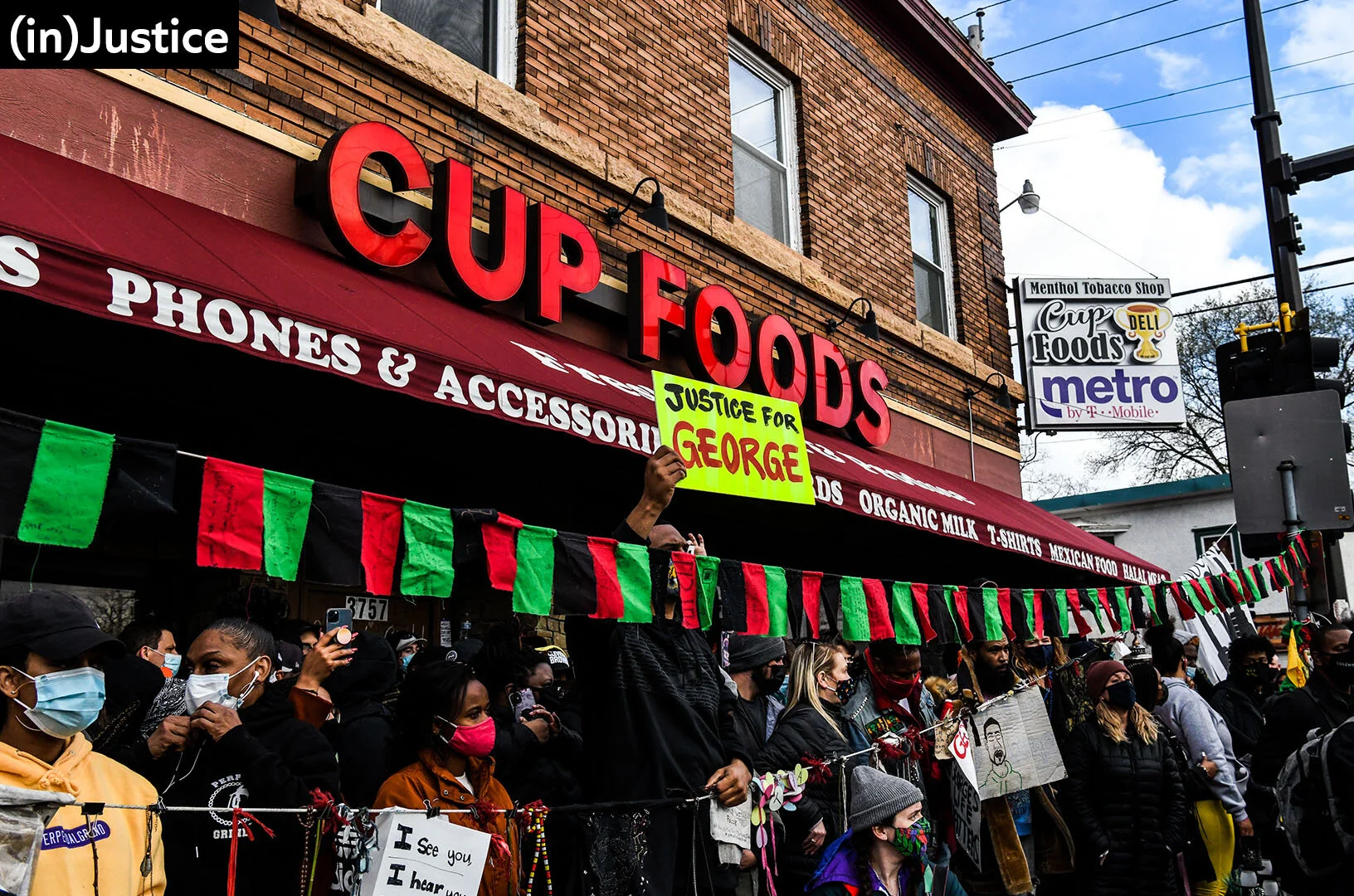Justice Is More Than A Trial
A demonstrator holds a sign "Justice for George" outside the Hennepin County Government Center during the opening statement of former Minneapolis Police officer Derek Chauvin on March 29, 2021 in Minneapolis, Minnesota. [AFP/Kerem Yucel]
Behind razor wire and concrete barriers, Derek Chauvin’s trial for the killing of George Floyd has begun. At the courthouse, Floyd’s family knelt down for over eight minutes to represent the length of time Chauvin knelt on their family member’s neck. Yesterday, jurors saw the video of the killing. The trial is expected to take about 30 days.
Last year, police killed more than 90 people in the U.S. every month on average, and about 28% of those people were Black. (Keep in mind that Black people make up 13% of the population in the U.S.) What do these grim numbers suggest? That by the time Chauvin’s trial is over, police will have killed close to a hundred more people.
Abolitionist organizers have pointed out repeatedly that while the failure to convict police officers is a symptom of white supremacy, putting a cop in jail is not going to fix the many forms of violence that police commit against communities. Putting Chauvin in jail will not prevent those hundred deaths. To make people safer, cities will need to shift billions of dollars from police to health care, housing and education.
It remains to be seen whether the Chauvin trial will turn out differently than most of the police trials before it. But what we know is that there is no justice while the killings continue.

![A demonstrator holds a sign "Justice for George" outside the Hennepin County Government Center during the opening statement of former Minneapolis Police officer Derek Chauvin on March 29, 2021 in Minneapolis, Minnesota. [AFP/Kerem Yucel]](https://images.squarespace-cdn.com/content/v1/5f21dbb91adde3260d4ba1ef/1617126071709-QWTOWZY14FXWWCYU8S71/000_96Z3HW.jpg)




